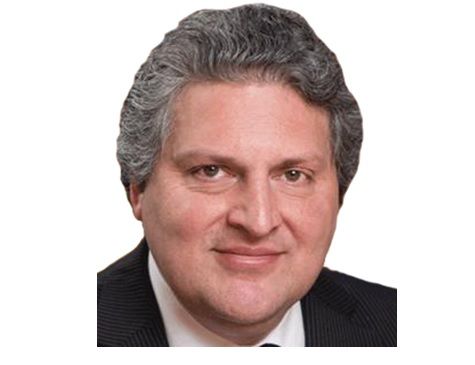DID MORGAN STANLEY chairman and CEO James Gorman knife the ambitious Greg Fleming, president of wealth management, and elevate Colm Kelleher, president of institutional securities, to sole president of the firm as part of a plea deal to stop him going for the Barclays CEO job?
Alternatively, did Gorman just get fed up with Fleming’s threats to resign if he didn’t get the keys to the executive bathroom in Morgan Stanley’s corner office? OK, that one’s doubtful. Did he act decisively to prevent the emergence of internecine warfare of Kelleher/Taubman proportions between the divisional presidents? Unlikely. Or has the media just over-engineered a governance imperative from the board to appoint a named successor in the event Gorman falls under the proverbial bus, given that he ain’t going anywhere for years? Probably.
So much speculation, so many conspiracy theories. But there is one undeniable fact: Kelleher has taken day-to-day management control of the entire firm, giving his chairman and CEO a bit more breathing room to deal with non-operational matters. In Kelleher, Morgan Stanley has someone who is extremely amiable and charming with a wonderfully wry sense of humour and someone who people like spending time with. But he’s also a no-nonsense guy who gets things done. And despite his extrovert personality, he likes to keep a low profile.
Assuming Gorman steers well clear of buses, will Kelleher become CEO of Morgan Stanley in five years or so? No. Failing some sort of extraordinary event, that much is crystal clear. If Fleming had one advantage over Kelleher it was age. At 58, Kelleher is a year older than Gorman and people who know Kelleher well say he is very clear that much as he might like the idea, he won’t be CEO.
In that respect, this is less a succession issue, more a virtuous holding pattern that should be good for years – certainly long enough for whoever the heir apparent is to be selected, blooded and made ready. Speculation about who that person is tends to focus on sales and trading head Ted Pick (close to Kelleher) and Dan Simkowitz, the former co-head of global capital markets appointed last year to run investment management with a reporting line into Gorman. But I’m sure others are being closely watched.
The perceived wisdom out there was that Fleming was that heir apparent, but I never believed that was really the case as long as Kelleher was at the firm. In August 2014, I wrote a piece entitled Kelleher vs. Fleming. It was tongue-in-cheek but I concluded then that no matter how successful Fleming had been in building out the wealth and investment management businesses to rival the institutional securities division in terms of revenues, Kelleher would always have the upper hand when it came to a straight-up contest between the two rivals. “My money’s on the Irishman”, I’d written in that earlier blog. I was bang on.
Will Kelleher become CEO of Morgan Stanley in five years or so? No
WITH THE BENEFIT of hindsight, it’s always easy to look back and see the signs. In that context, Simkowitz going over the divisional wall from institutional securities to run IM away from Fleming was one sign that the latter’s power was waning.
Then there was Kelleher’s sweet US$2m supplemental award for 2014, laid out in the April 2015 proxy statement. That was given “in recognition of his continued contributions and commitment to the company during 2014, as demonstrated in his successful execution of his global role, management of global regulatory obligations, and regular client interactions across many jurisdictions”. It gave Kelleher a clear advantage over Fleming (the two were otherwise both awarded identical comp of US$16m).
But I think what these latest developments in essence show is that at the core of Morgan Stanley lies an investment bank supported by a wealth management business. It’s the reverse of the Swiss model that UBS and Credit Suisse are moving towards of core wealth management franchises supported by investment banks. It’s a key distinction.
It’s also recognition of the years of service Kelleher has given to the firm, including those crucial years when he was instrumental in helping save the firm in the run-up to and at the time of the Lehman collapse (when he was CFO) and in the years since, radically downsizing and repairing the fixed-income sales and trading businesses, a process of course that is still in play.
My core IB DNA thesis is supported by the number of investment bankers rather than wealth managers in key positions. As well as Simkowitz, MS veteran and highly regarded former co-head of capital markets Raj Dhanda switched to wealth management in 2015 as head of investment products and services.
Bankers and traders dominate the operating committee. Global co-heads of investment banking Mark Eichorn and Franck Petitgas sit on the firm’s most senior body, as do Pick, Simkowitz and co-global heads of fixed income Michael Heaney and Robert Rooney. CFO Jonathan Pruzan had been co-head of the FIG group in investment banking prior to taking over from Ruth Porat last March. The wealth management side has just co-heads Shelley O’Connor and Andy Saperstein to bat for a division that accounted for more than 41% of net revenues at the nine-month stage. That says something.
All of that notwithstanding, what Kelleher can and definitely will do now is force better linkages, improved touchpoints and enhanced cross-selling between the divisions. As sole president, he at least has no rivals to distract his attention.
